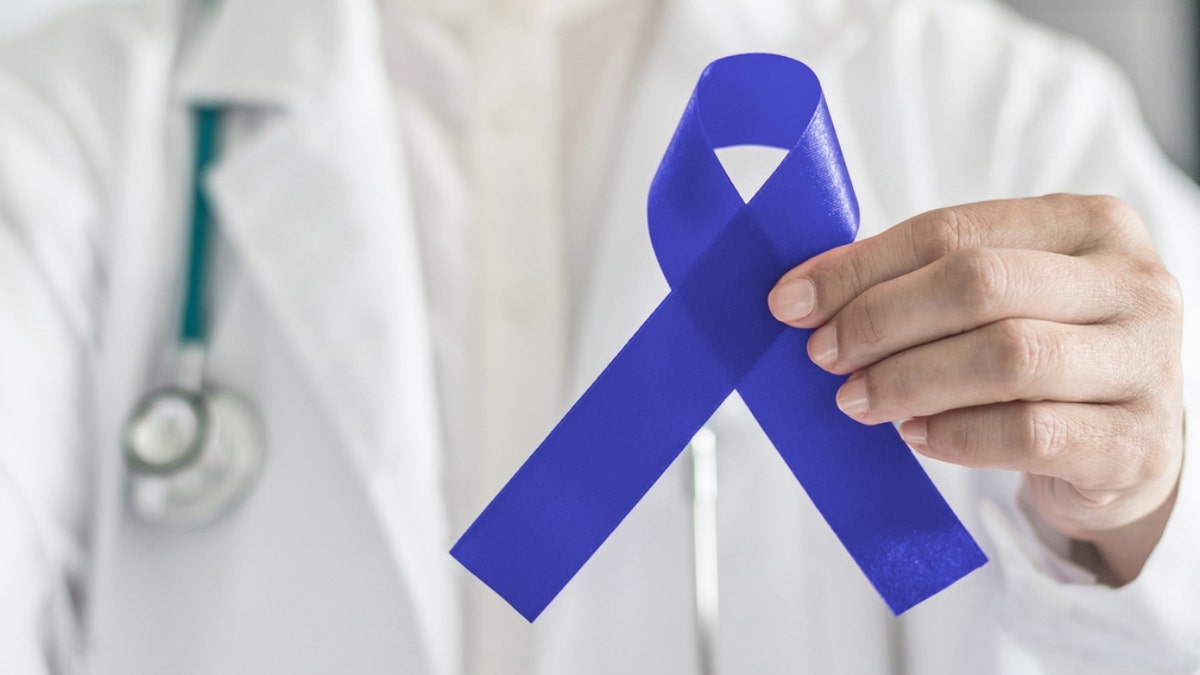Fox News Flash top headlines for March 10
Fox News Flash top headlines are here. Check out what's clicking on Foxnews.com.
March is National Colorectal Cancer Awareness Month.
Colorectal cancer, sometimes called colon cancer, occurs in the colon or rectum.
According to the American Association for Cancer Research (AACR), more than 52,980 people living in the U.S. died of colorectal cancer in 2021.
DISTANT-STAGE COLON CANCER SHOWING UP MORE IN YOUNGER ADULTS, STUDY SAYS
The association said an estimated 149,500 people across the country were diagnosed with colon cancer.
The Centers for Disease Control and Prevention (CDC) shows colorectal cancer is the second-leading cause of cancer death in the nation.

A dark blue ribbon for colon cancer awareness (iStock)
It is more common in men than in women, and the risk of getting colorectal cancer increases as a person ages.
The AACR notes that it is also more common among Black Americans than people of other races and that the median age of diagnosis in the U.S. is 67 years old.
SUGARY DRINKS AND INCREASED COLON CANCER RISK LINKED IN STUDY INVOLVING NURSES
Those who smoke, consume alcohol or are obese are more likely to be diagnosed with colorectal cancer. Adopting healthy behaviors, the association said, can reduce risk.
The CDC says regular screening beginning at the age of 45 is the key to prevention, especially because colorectal polyps and colorectal cancer don’t always cause symptoms – especially at first.
Symptoms may include a change in bowel habits, blood in or on your stool, diarrhea, constipation, weight loss and abdominal pain, aches or cramps that don't go away.
The AACR says colonoscopy screening can prevent colorectal cancer because precancerous polyps found during the procedure can be removed at the same time.
In a February order, President Biden wrote that his administration is calling on every American to get back on track with recommended screenings and for the public and private sectors to increase access to early detection for individuals and communities.
CLICK HERE TO GET THE FOX NEWS APP
"During National Colorectal Cancer Awareness Month, I urge every American to exercise vigilance around their own health and the health of their loved ones. Early diagnosis and treatment save lives – and getting screened for colorectal cancer is vitally important as we continue our shared mission to end cancer as we know it," he said.



